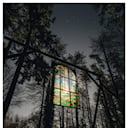Father Zosima is a protagonist of Dostoevsky's "The Karamazov Brothers". What is his vision of hell?
"The Karamazov Brothers"(Russian: Бра́тья Карама́зовы), is the final novel by Russian author Fyodor Dostoevsky (1821 – 1881) and generally considered to be his masterpiece. It is the story of Fyodor Karamazov and his sons Alyosha, Dmitry, and Ivan. It is also a story of patricide, a love-hate struggle with profound psychological and spiritual implications.
Father Zosima (the monk who is considered an 'elder' or spiritual guide, a spiritual father in his monastery) articulates some of Dostoevsky’s great themes. He teaches that evil happens not just because of a few criminals but because of a moral climate in which all people participate by harbouring evil wishes. Therefore, as Father Zosima teaches, “everyone is responsible for everyone and for everything.”
In his discourse on hell he says: “I ask myself: ‘What is hell?’ And I answer thus: ‘The suffering of being unable to love.’ Once in infinite existence, immeasurable in time and space, a spiritual creature was given on his coming to earth the power of saying, 'I am and I love.' ... And that happy creature rejected the priceless gift, prized it and loved it not, scorned it and remained callous."
The two qualities he values above all others are love and honesty, particularly honesty with oneself. In Zosima’s view, the ability to love is based on the ability to recognize truth. If we are unable to tell lies from truth, assuming that everything is a lie, we lose respect for others and thus the ability to love them.
More Info:
www.britannica.com
